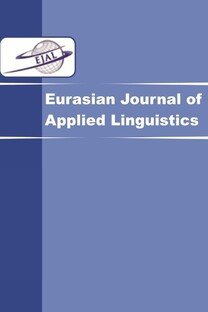Corrective Feedback on Writing in EFL Context: Comparison of Two Approaches
Although there is a disagreement among researchers on the effectiveness of corrective feedback (CF) in L2 writing (Ferris, 1999; Truscott, 1996; Truscott 1999), many studies proved that CF improves L2 learners’ accuracy in writing over time. Therefore, instead of investigating the effectiveness of CF, some researchers carried out studies to investigate the effectiveness of different methods, techniques, approaches of applying CF (e.g. Bitchener, Young & Cameron, 2005; Chandler, 2003; Tootkaboni & Khatib, 2014) in L2 writing. Similarly, this current study was conducted to investigate the effects of two different corrective feedback types on L2 written performances. The first corrective feedback type is explicit feedback (cognitive-interactionist approach) in which the feedback is given directly, the other corrective feedback type is graduated feedback (sociocultural approach) in which the feedback is given as an assistance. The study conducted in one of the private universities in Turkey, with 11 Turkish EFL students. The students in the Explicit Feedback Group (n=5), and the students in the Graduated Feedback Group (n=6) completed their opinion paragraphs and received feedback according to the group they were assigned. After two weeks, the same procedure was applied to find out if there were any changes over time. The results of the study showed that the students in the Graduated Feedback Group were more successful in terms of doing self-correction than the students in the Explicit Feedback Group.
Keywords:
Cognitive-interactionist approach, corrective feedback, explicit feedback graduated feedback, sociocultural approach,
___
- Adams, R., Nueve, A., & Egi, T. (2011). Explicit and implicit feedback, modified output, and SLA: Does explicit and implicit feedback promote learning and learner–learner interactions? The Modern Language Journal, 95 (1), 42-63. https://doi.org/10.1111/j.1540-4781.2011.01242.x
- Ai, H. (2017). Providing graduated corrective feedback in an intelligent computer-assisted language learning environment. ReCall, 29(3), 313-334. https://doi.org /10.1017/ S095834 401700012X
- Aljaafreh, A. L., & Lantolf, J. P. (1994). Negative feedback as regulation and second language learning in the zone of proximal development. The Modern Language Journal, 78(4), 465-483. https://doi.org /465-483. 10.2307/328585
- Ashwell, T. (2000). Patterns of teacher response to student writing in a multiple-draft composition classroom: Is content feedback followed by form feedback the best method? Journal of Second Language Writing, 9, 227–258. https://doi.org/10.1016/S1060-3743(00)00027-8
- Bitchener, J., Young, S., & Cameron, D. (2005). The effect of different types of corrective feedback on ESL student writing. Journal of Second Language Writing, 14(3), 191-205. https://doi.org/10.1016/j.jslw.2005.08.001
- Cohen, A. D., & Robbins, M. (1976). Toward assessing interlanguage performance: The relationship between selected errors, learners’ characteristics, and learners’ expectations. Language Learning, 26, 45–66. https://doi.org/10.1111/j.1467-1770.1976.tb00259.x
- Chaiklin, S. (2003). The zone of proximal development in Vygotsky’s analysis of learning and instruction: Vygotsky’s Educational Theory in Cultural Context, New York: Cambridge University Press.
- Chandler, J. (2003). The efficacy of various kinds of error feedback for improvement in the accuracy and fluency of L2 student writing. Journal of Second Language Writing,12, 267–96. https://doi.org/10.1016/S1060-3743(03)00038-9
- Ellis, R., Loewen, S., & Erlam, R. (2006). Implicit and explicit corrective feedback and the acquisition of L2 grammar. Studies in Second Language Acquisition, 28(2), 339-368. https://doi.org/10.1017/S0272263106060141
- Erlam, R., Ellis, R., & Batstone, R. (2013). Oral corrective feedback on L2 writing: Two approaches compared. System, 41(2), 257-268. https://doi.org/10.1016/j.system.2013. 03.004
- Ferris, D. (1999). The case for grammar correction in L2 writing classes: A response to Truscott (1996). Journal of Second Language Writing, 8(1), 1-11. https://doi.org/10.1016/ S1060-3743(99)80110-6
- Ferris, D. R. (2004). The “grammar correction” debate in L2 writing: Where are we, and where do we go from here?(and what do we do in the meantime…?). Journal of Second Language Writing, 13(1), 49-62. https://doi.org/10.1016/j.jslw.2004.04.005
- Ferris, D. R., Chaney, S. J., Komura, K., Roberts, B. J. & McKee, S. (2000). Perspectives, problems, and practices in treating written error. In Colloquium presented at International TESOL Convention, Vancouver, B.C., March 14–18.
- Ferris, D., & Roberts, B. (2001). Error feedback in L2 writing classes: How explicit does it need to be? Journal of Second Language Writing, 10, 161–184. https://doi.org/10.1016/S1060- 3743 (01)00039-X
- Frantzen, D., & Rissell, D. (1987). Learner self-correction of written compositions: What does it show us? Foreign Language Learning: A Research Perspective, Cambridge University Press.
- Han, Z. (2002). A study of the impact of recasts on tense consistency in L2 output. TESOL Quarterly, 36(4), 543-572. https://doi.org/10.2307/3588240
- Li, S. (2010). The effectiveness of corrective feedback in SLA: A meta‐analysis. Language Learning, 60(2), 309-365. https://doi.org/10.1111/j.1467-9922.2010.00561.x
- Lyster, R., & Ranta, L. (1997). Corrective feedback and learner uptake. Studies in Second Language Acquisition, 19(1), 37-66. https://doi.org/10.1017/S0272263197001034
- Mackey, A., & Philp, J. (1998). Conversational interaction and second language development: Recasts, responses, and red herrings? The Modern Language Journal, 82(3), 338-356. https://doi.org/10.1111/j.1540-4781.1998.tb01211.x
- Nagata, N. (1993). Intelligent computer feedback for second language instruction. The Modern Language Journal, 77(3), 330-339. https://doi.org/10.1111/j.1540-4781.1993.tb01980.x
- Ortega, L. (2013). Understanding second language acquisition. New York, NY: Routledge.
- Tootkaboni, A. A., & Khatib, M. (2014). The efficacy of various kinds of error feedback for improvement in the writing accuracy of Iranian EFL learners. Bellaterra Journal of Teaching & Learning Language & Literature, 7(3), 30-46. https://doi.org/10.5565 /rev/jtl3.529
- Truscott, J. (1996). The case against grammar correction in L2 writing classes. Language Learning, 46, 327–369. https://doi.org/10.1111/j.1467-1770.1996.tb01238.x
- Truscott, J. (1999). The case for “The case against grammar correction in L2 writing classes”: A response to Ferris. Journal of Second Language Writing, 8(2), 111-122. https://doi.org/10.1016/S1060-3743(99)80124-6
- Vygotsky, L. S. (1978) Mind in society. Cambridge, MA: Harvard University Press.
- ISSN: 2149-1135
- Başlangıç: 2015
- Yayıncı: Ece Zehir Topkaya
Sayıdaki Diğer Makaleler
Gholam Hassan Khajavy, Hossein Makiabadi, Samaneh Abdi Navokhi
Gholam Hassan KHAJAVY, Hossein MAKİABADİ, Samaneh Abdi NAVOKHİ
Correlates of Listening Comprehension in L1 and L2: A Meta-analysis
İskender Hakkı SARIGÖZ, Fatıma Nur FİŞNE
Corrective Feedback on Writing in EFL Context: Comparison of Two Approaches
Mine Gündüz Kartal, Derin Atay
Review of Linguistic Pragmatics of Intercultural Professional and Business Communication
It was found that…: Introductory it Patterns by Native and Non-Native Authors
